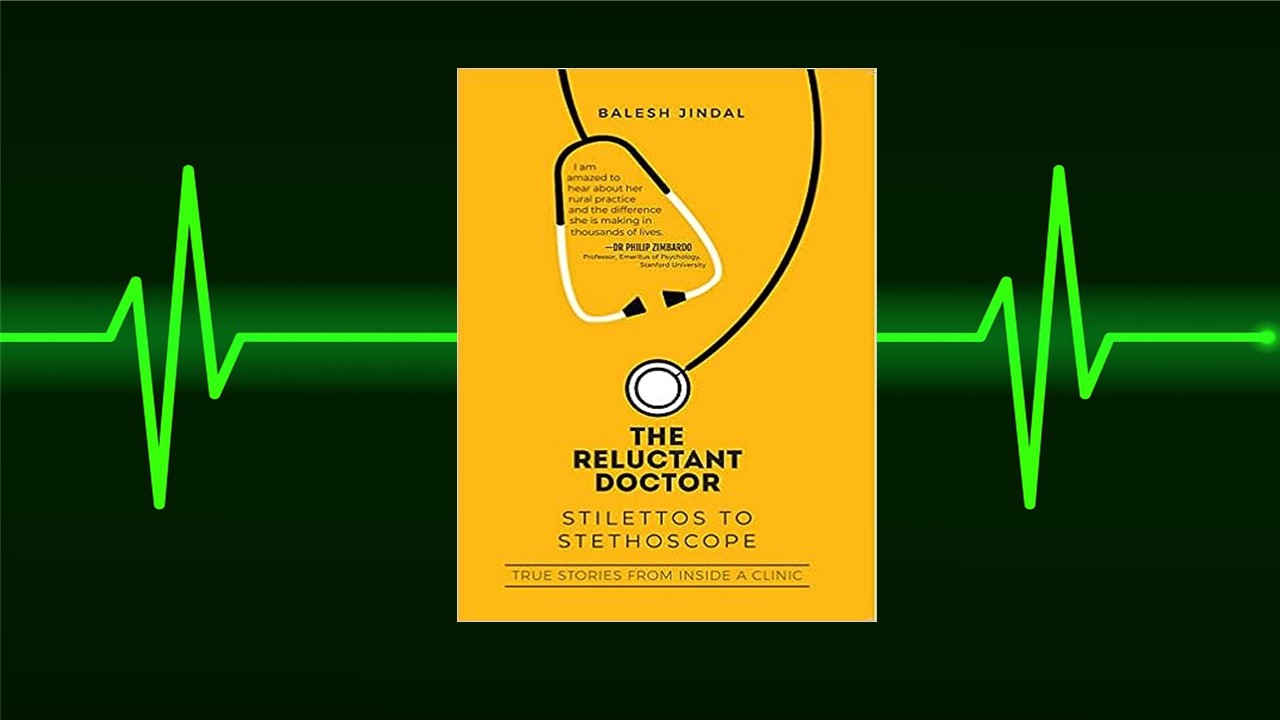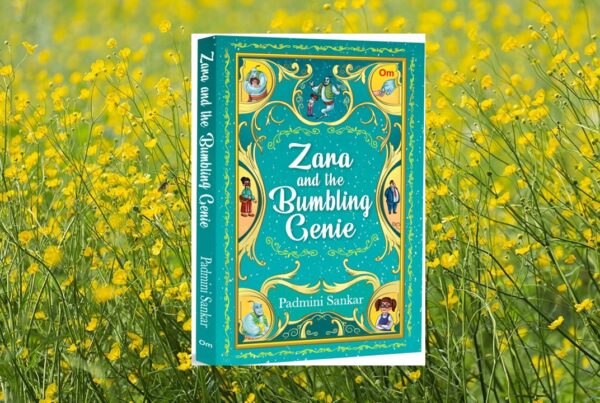Dr. Balesh Jindal’s The Reluctant Doctor: Stilettos to Stethoscopes is a brilliant and honest memoir that chronicles her forty-year-old practice. It is heartwarming, poignant, and hard-hitting. This is a story of a doctor’s pursuit to change the lives of her patients through persistence and grit. AJ Cronin’s Citadel is one of my favourite books, and parts of this memoir reminded me of it, a testimony to the writer’s prowess and diverse medical experience.
As a young, bright-eyed, newly-minted doctor, Dr. Jindal plans to study Pediatrics in London and live a life she has always dreamed of. Fate has other plans in store for her. Her father insists that she manage a rural clinic in Kapashera, an impoverished area in India, with little access to medical care. While initially reluctant, she sets foot into the makeshift clinic, and her life changes forever.
Dr. Jindal soon discovers the difference that she as a General Practitioner can make to the lives of these villagers. Through her practice, she not only reduces mortality but also improves living conditions. Acceptance from patients doesn’t come easy; as a female doctor, she also has to deal with the patriarchy and biases that are prevalent in rural India. In a rural set-up, the cost of care matters; if patients cannot afford a doctor, they will visit a quack or resign themselves to fate, both of which can be disastrous.
The author is candid about her privilege and her initial feelings of disdain. On the job, she proves to be exemplary, picking up skills that the medical books did not teach and comes up with out-of-the-box solutions. Initially, she does not have the facilities to perform tests or imaging and has to rely on her gut feel to treat the patient. She uses placebos when needed, or cheaper generics to treat ailments.
Dr. Jindal is resourceful; she buys imaging equipment for her clinic and diagnoses lung diseases and fractures faster. She earns the respect of her patients and finds her waiting room always full. The villagers soon consider her a Godsend. At times she is confronted with dilemmas, like taking a risk to save the patient, but at the cost of earning the wrath of relatives or running into trouble with the law.
Dr. Jindal witnesses incidents of gender violence and the unfair treatment of women. Like when a child falls sick, the mother is blamed for the poor quality of breast milk. Cases of Tuberculosis are covered up for fear of ostracization within the family itself. She highlights the frequent pregnancies and the gynacological problems that women endure.
Menstruation is another area of concern; women on their periods are often ill-treated. When a woman is brought into the clinic and the doctor asks her for the last menstrual date, it is the men of the family who answer for her.
The boy child is fed and clothed better than a girl child. If a dog were to bite both the boy and the girl, the parents would administer the expensive anti-rabies shot to the boy, leaving the girl’s fate to destiny. Such anecdotes are poignant and hard-hitting.
Dr. Jindal highlights the contrast between the initiatives structured by policy-makers who sit in air-conditioned rooms versus the on-ground realities. One example that she quotes is when women refuse to go for a tubectomy procedure because their husbands can’t accompany them. This is due to their inability to take even a day’s leave for fear of losing their jobs. The doctor’s insights and simple workarounds make the implementation of such schemes more effective. One can’t help but wish that policy-makers consulted medical professionals like her before-hand.
Dr. Jindal traces the evolution of her practice and the changing nature of ailments over the years. With globalization and new money flowing in, the rise in crimes against women is also on a high. The incidents of violence quoted in this book exam are gory and shocking, like the bride whose flesh is burned so badly it sticks to her clothes or the twelve-year-old who is made pregnant by a member of the family. These grim and desolate truths hit the reader hard. Dr. Jindal also challenges the concept of a ‘big fat Indian happy family’ where young children are subject to unwanted advances, but their caregivers turn a blind eye.
The author’s relationship and her unwavering love for her father shine through her writing. Her father is a beautiful soul with extraordinary vision and foresight; his selfless action was instrumental in changing many lives.
I found the ending a tad abrupt; it would have been great to have a chapter on the doctor’s reflections, rounding off the journey so far. Overall, the narrative is bold, and the author is candid while expressing her views. This memoir will have you tearing up in places and cheering in others. It has much potential to be made into a full-fledged OTT series, reminiscent of a Grey’s Anatomy or a New Amsterdam.
The Reluctant Doctor is brilliant and eye-opening. Go for it!




